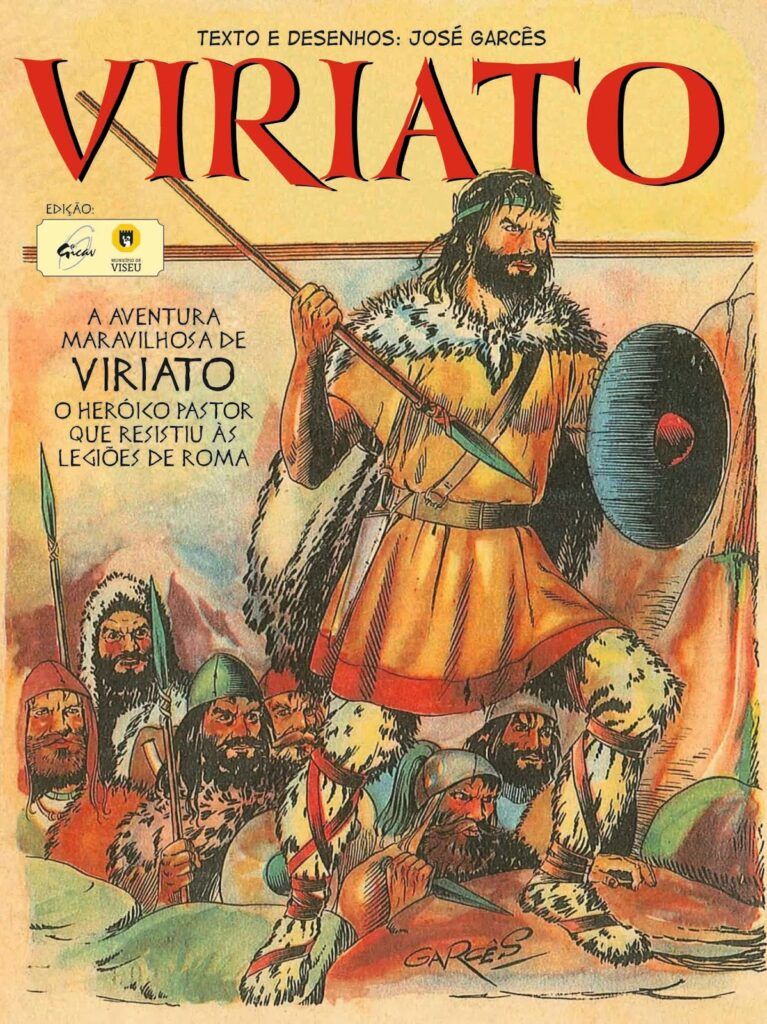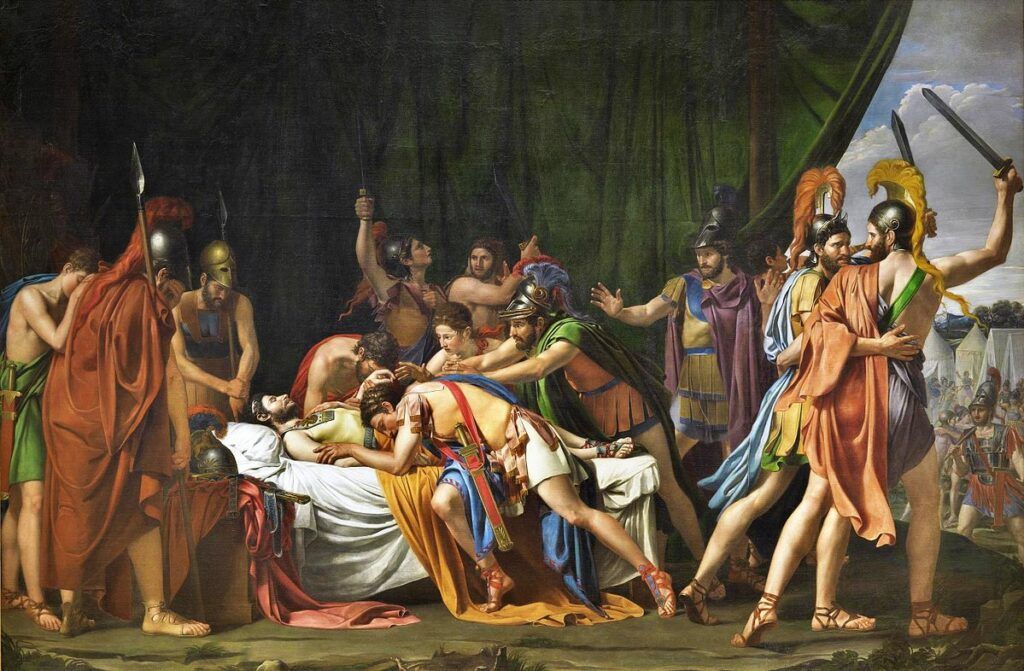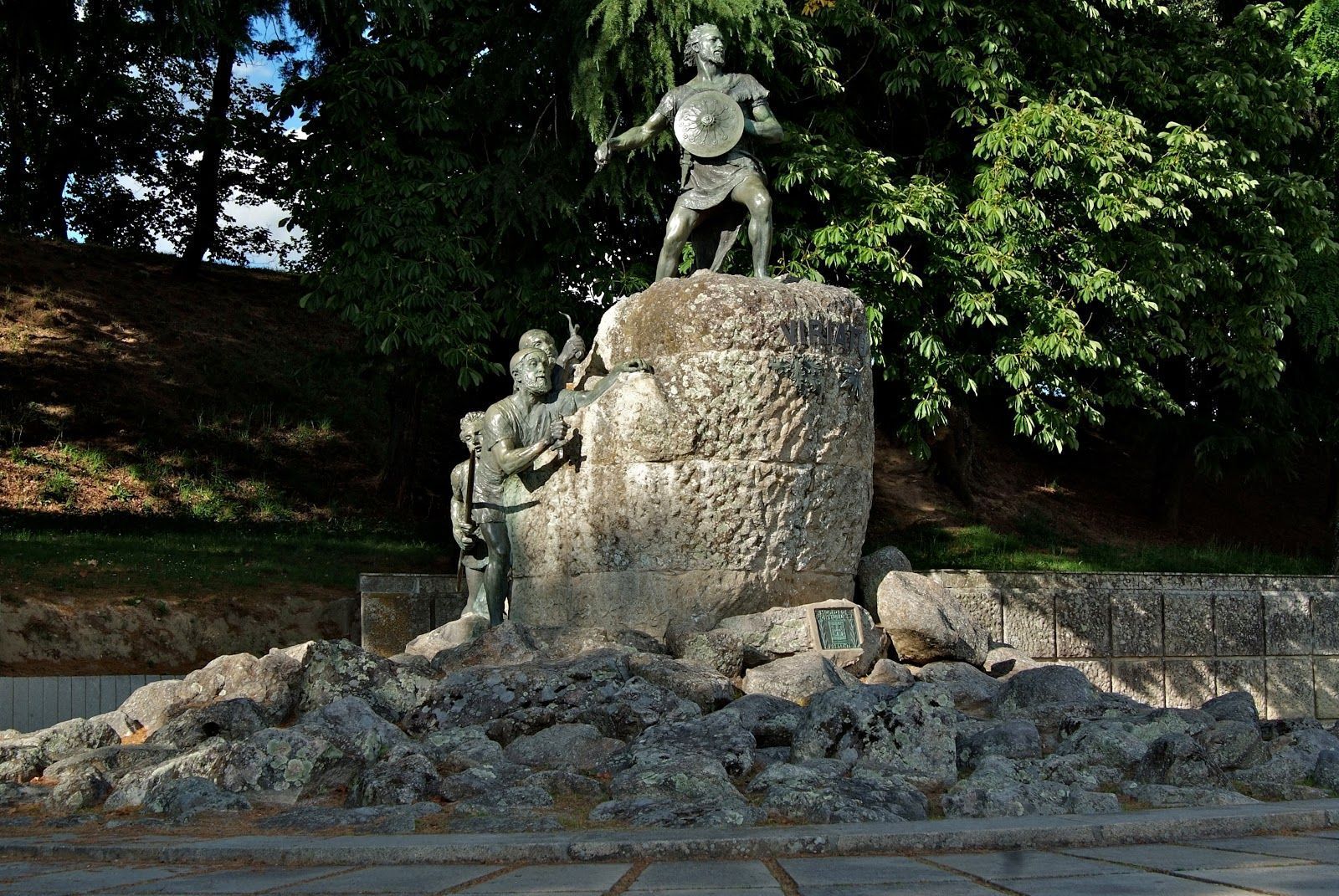My recent trip to Viseu brought back to mind one of Portugal’s greatest legendary figures. Viriato (Viriathus, in English) is usually the first historical figure Portuguese children learn about in school. And whilst his story is impressive, it’s rarely heard outside of outside Portugal and Spain. No more! The world needs to know about this bad-ass hero who put the mighty Roman army to shame. I’m baffled by why there hasn’t been a Braveheart-style movie made about Viriato yet… but Hollywood, if you’re reading this, there’s an idea for you!
It is believed that Viriato was born circa 181 BC in the Serra da Estrela region of Portugal, although little is known about his early life. Some say he was a shepherd, turned hunter, turned general. Others say he belonged to the upper classes of the Lusitanian people who inhabited the Iberian peninsula at the time. During a period of 250 years, Roman armies aimed to conquer the entire peninsula, eventually succeeding in 19 BC. As they expanded their territory, local tribes were forced to live under Roman regulations, pay taxes to Rome, and eventually even serve in the Roman army.

The Lusitanian War (155 – 139 BC) was fought by local tribes as a resistance movement to the powerful Roman invaders. Viriato was chosen as the Lusitanians’ leader and was successful in defeating the Romans in both defensive and offensive battles. Additionally, he proved to be a skilled tactician by using both traditional, army-to-army style tactics, as well as guerrilla warfare. Rome began to take notice of these multiple defeats and Viriato’s name became notorious. However, it was in 140 BC, after Viriato and his men defeated the regional Roman Consul in a battle where 3000 Roman soldiers died in combat, that Rome decided enough was enough. After the Consul made promises of Lusitanian autonomy in exchange for his sparing life, Viriato consented. Rome, however, was humiliated. They sent back a new Consul and declared war on Viriato and the Lusitanians.
As you might suspect, Viriato maintained the upper hand in battle. He sent three of his men to negotiate a peace treaty. But – tragically – those men were bribed to assassinate Viriato, which they did in his sleep one night in 139 BC. After Viriato’s death, the Lusitanian armies were much demoralized and started to lose the war against the invading armies. The three men assassins fled to claim their reward but, instead, were executed and a sign was posted by their bodies stating, “Rome doesn’t pay traitors”.


Viriato was described as having been an honest man, true to his principles and faithful to his promises and treaties. (In case you were looking for a strong, unique name for your future son, Viriato is on the list of approved names in Portugal.) Today, you will find statues and depictions of Viriato throughout Portugal and even Spain, but especially in the Viseu and Serra da Estrela region. One of Viseu’s local delicacies is a sweet pastry called a viriato, and is shaped like the letter V. Despite having lived 2200 years ago, his legend is still an influential and lasting figure in Portuguese identity.
Cover photo c/o abuscapelasabedoria.blogspot.com


